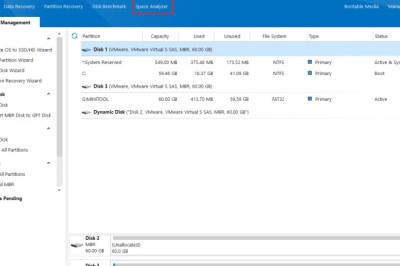views

For a long time, traditional software development methods were inefficient – teams would work independently and there were frequent delays in the software deployment process. With such challenges in the IT industry, one of the ways to address them is through DevOps – a new methodology coined by Matthew Debois in 2009. Before we get into the best DevOps practices, we must first answer the question: what exactly is it?
What Is DevOps?
DevOps is a portmanteau of the words ‘developer’ and ‘operations’. As the name implies, it combines the processes of software development and operations to streamline product deliveries. DevOps is a growing culture of sorts – one that serves as a bridge between operations and development teams, and this bridge is what allows them to thrive.
This synergistic approach allows teams to work together to make changes to code and leave other processes to the hands of automation. And the result? A more streamlined software development life cycle while delivering products to consumers at top speed. It’s no question why many more companies are building a successful DevOps culture in their companies.
As mentioned earlier, building a culture of DevOps typically involves two teams: development and operations. That means you’ll need professionals with technical expertise such as software developers and automation architects. But if you want to instigate change in the form of cultivating a DevOps culture in your company, consider adding DevOps engineers to your team.
What Are the Best DevOps Practices?
Now that we’ve successfully defined ‘DevOps’, you’re probably wondering – how can I successfully implement a strong DevOps culture? If that question’s been on your mind, here’s what you should know about the best strategies for its successful implementation.
Communication Is Key
We all know how working with teams can sometimes get difficult. Sometimes, we’d have different working styles from others, which could increase inefficiencies in the workplace. And in other instances, simple messages could even get lost in translation. This is all the more amplified in remote work environments.
Fortunately, these issues can be reduced. All you need is proper communication. DevOps culture centers on collaboration, and effective collaboration is next to impossible without effective communication. It’s important to provide employees with the necessary resources to simplify the process of working hand in hand. This includes messaging applications and project management tools.
There are a few strategies you can employ for effective communication in the workplace. One of them is to establish rapport with your employees as it’s crucial to build that level of trust. So take them out for lunch – talk about their interests, their hobbies, or what makes them wake up in the morning. This allows employees to break the ice and open up about their thoughts.
Another way to enhance your organizational communication is to lead by example. Employees are more likely to communicate effectively if you do so, too. For example, you can prevent communication overload by encouraging employees to review their notification settings, so they don’t get bombarded with them too frequently. And by limiting the number of communication channels you use, your DevOps team will be thankful for your efforts in streamlining internal communication.
Harness the Power of Automation
One of the best ways to reduce the efficiencies in your workflow is by harnessing the power of automation. Automation not only lessens the amount of time to complete tasks but also reduces the chances of errors. By leaving some of the processes to the hands of automation, DevOps teams can focus on other critical tasks.
Learn From Incidents
No matter how hard you prepare, there will always be an incident in the IT world – some of them can get critical to the level of serious data breaches. Because these are sometimes inevitable, take these events as learning experiences – affected team members must communicate and arrive at a solution. It helps to log these incidents, with the help of logging tools. From this data, identify the points of improvement to avoid these occurrences again.
Maintain Security
In a world where cyberattacks have become more rampant, cybersecurity is now more important than ever. And it’s just as important in the successful implementation of a DevOps culture. That means following secure coding practices – such as password management and access control. Additionally, your team must utilize tools that support security testing and analysis.
In Conclusion
DevOps was a game-changer in the IT industry. By allowing development and operations teams to work collaboratively, the inefficiencies of the traditional software development methods were reduced – resulting in faster and more accurate deployment of software. Some of the best practices you can employ include focusing on your internal communication and bolstering your security. Automating your work processes can help you build a successful DevOps culture, too. One thing’s for sure, successfully implementing a DevOps culture in your organization is bound to provide you with plenty of benefits – from quicker deployment to cost savings.




















Comments
0 comment